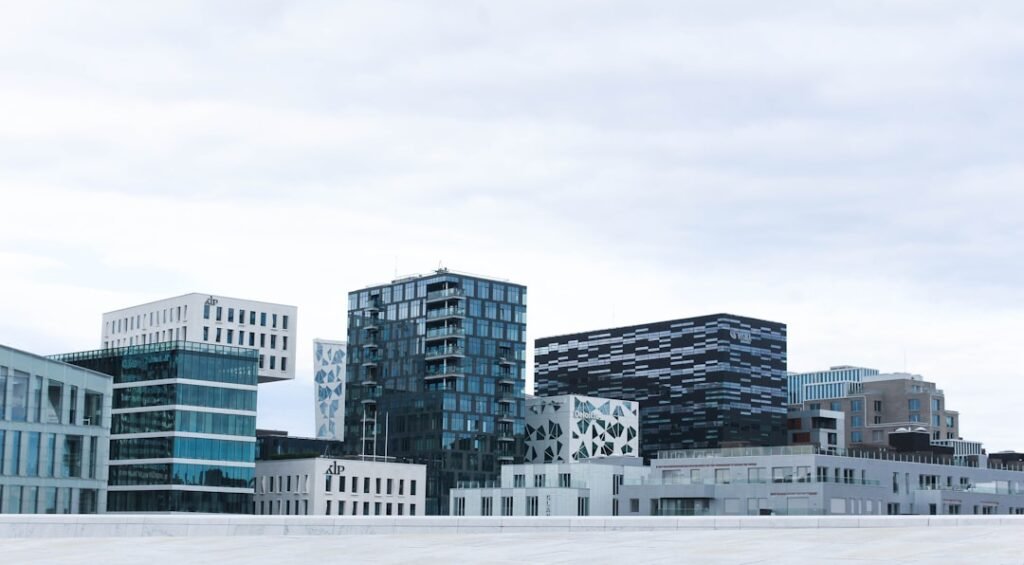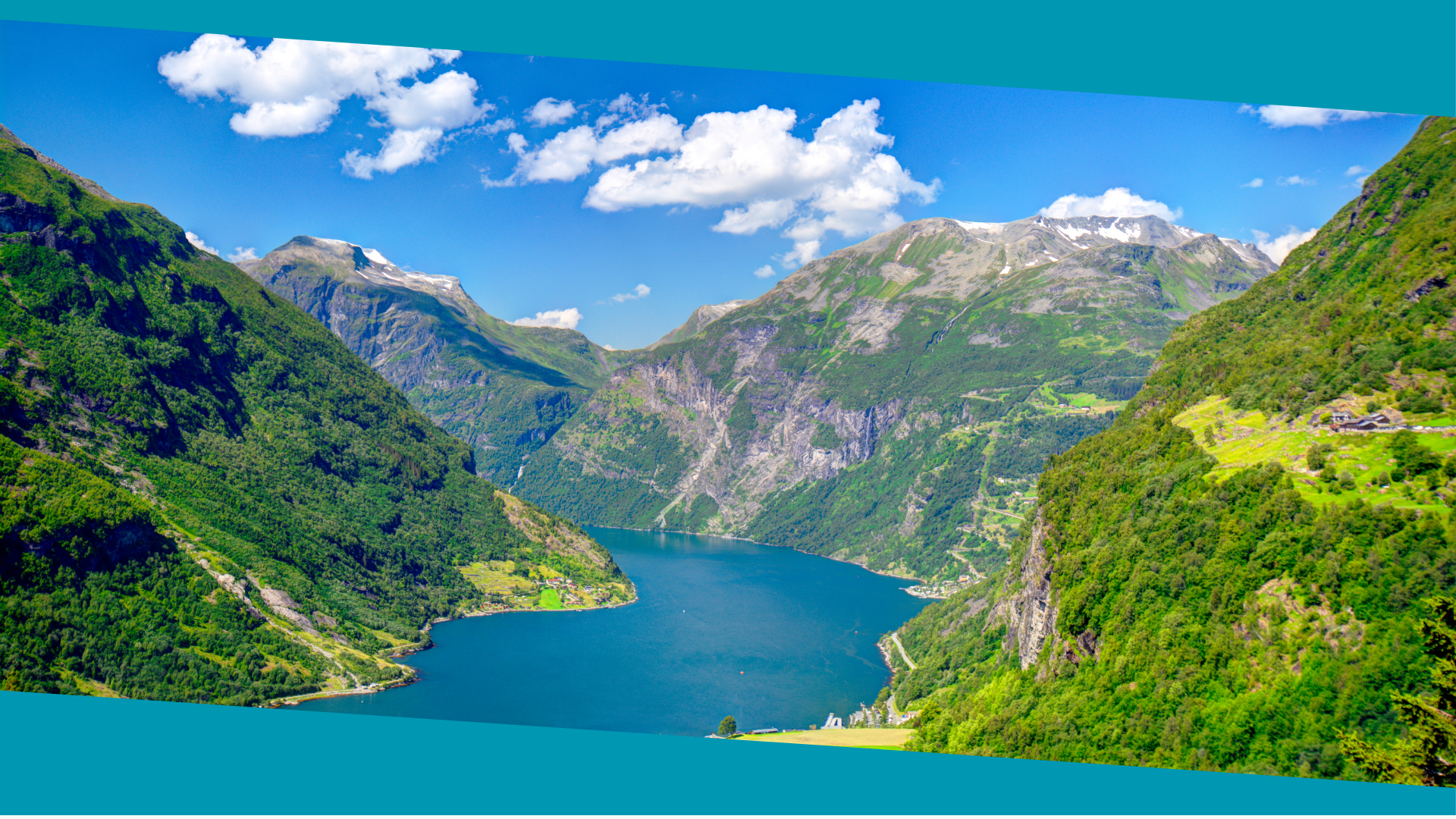Oslo, the capital city of Norway, is renowned for its commitment to sustainable development. With its innovative practices and policies, Oslo has become a global leader in creating a sustainable and livable city. In today’s world, where environmental issues and climate change are major concerns, sustainable development has become more important than ever. It is crucial for cities to adopt sustainable practices to ensure a better future for generations to come.
Oslo’s Sustainable Development Philosophy and Goals
Oslo’s sustainable development philosophy is centered around the idea of balancing economic growth with environmental protection and social equity. The city aims to create a sustainable and inclusive society where people can live in harmony with nature. Oslo’s sustainable development goals include reducing greenhouse gas emissions, promoting renewable energy, improving air quality, enhancing public transportation, and creating green spaces for its residents.
Oslo City Government’s Sustainable Development Policies and Measures
The Oslo City Government has implemented various policies and measures to achieve sustainable development. One of the key initiatives is the Oslo Climate and Energy Strategy, which aims to reduce greenhouse gas emissions by 95% by 2030 compared to 2009 levels. The government has also introduced incentives for electric vehicles, such as free parking and toll exemptions, to encourage the use of clean transportation. Additionally, the city has implemented strict regulations on building energy efficiency and waste management.
Oslo’s Clean Energy and Carbon Reduction Plan
Oslo has made significant progress in transitioning to clean energy sources and reducing carbon emissions. The city has invested heavily in renewable energy infrastructure, such as wind farms and solar panels. It has also implemented district heating systems that utilize waste heat from industries and incineration plants. These initiatives have helped Oslo reduce its carbon footprint and become a carbon-neutral city.
Oslo’s Public Transportation System and Sustainable Travel
Oslo boasts an efficient and comprehensive public transportation system that encourages sustainable travel. The city has an extensive network of buses, trams, and trains that provide convenient and affordable transportation options for its residents. Oslo has also invested in cycling infrastructure, with dedicated bike lanes and bike-sharing programs. These initiatives have led to a significant reduction in private car usage and improved air quality in the city.
Oslo’s Urban Planning and Green Building Construction

Oslo’s urban planning practices prioritize sustainability and green spaces. The city has implemented strict regulations on building design and construction to ensure energy efficiency and environmental friendliness. Oslo encourages the use of sustainable materials and technologies in building construction, such as green roofs, rainwater harvesting systems, and energy-efficient lighting. These practices not only reduce the environmental impact of buildings but also create a healthier and more livable urban environment.
Oslo’s Waste Management and Resource Recycling
Oslo has implemented innovative waste management practices to minimize waste generation and promote resource recycling. The city has a comprehensive waste sorting system, where residents are required to separate their waste into different categories for recycling. Oslo also has advanced waste-to-energy incineration plants that convert non-recyclable waste into heat and electricity. These initiatives have helped Oslo achieve high rates of waste recycling and reduce its reliance on landfilling.
Oslo’s Environmental Education and Public Participation
Oslo places great emphasis on environmental education and public participation in sustainable development practices. The city offers various educational programs and initiatives to raise awareness about environmental issues and promote sustainable lifestyles. Oslo also encourages public participation through citizen engagement platforms, where residents can contribute ideas and suggestions for sustainable development projects. By involving the public in decision-making processes, Oslo ensures that its sustainable development practices are inclusive and representative of the community’s needs.
Oslo’s Sustainable Tourism and Ecological Conservation
Oslo is committed to promoting sustainable tourism practices that minimize the negative impact on the environment and local communities. The city encourages tourists to use public transportation, stay in eco-friendly accommodations, and engage in responsible tourism activities. Oslo also places a strong emphasis on ecological conservation, with numerous protected areas and nature reserves within the city limits. These initiatives help preserve Oslo’s natural beauty and biodiversity for future generations to enjoy.
Future Prospects and Challenges of Oslo’s Sustainable Development Practices
The future prospects for Oslo’s sustainable development practices are promising. The city has set ambitious goals to become carbon-neutral and achieve a circular economy by 2030. Oslo’s commitment to renewable energy, sustainable transportation, and green building construction will continue to drive its progress towards a more sustainable future. However, there are also challenges that Oslo may face in achieving sustainable development, such as the need for continued investment in infrastructure and technology, as well as the need for public support and cooperation.
Oslo’s sustainable development practices have made it a global leader in creating a livable and environmentally friendly city. The city’s commitment to balancing economic growth with environmental protection and social equity has resulted in innovative policies and measures that promote sustainability in various sectors. Oslo’s clean energy plan, public transportation system, urban planning practices, waste management strategies, and environmental education programs all contribute to its success in achieving sustainable development. As the world faces increasing environmental challenges, Oslo serves as an inspiring example of how cities can create a sustainable future for their residents.
请点击这里阅读一篇关于挪威首都奥斯陆可持续发展实践的相关文章。
FAQs
什么是挪威首都奥斯陆的可持续发展实践?
挪威首都奥斯陆的可持续发展实践是指该城市在经济、社会和环境方面实现可持续发展的一系列措施和实践。
奥斯陆在可持续发展方面取得了哪些成就?
奥斯陆在可持续发展方面取得了多项成就,包括建设了大量的自行车道和步行道、推广使用电动汽车、实行垃圾分类和回收、采用可再生能源等。
奥斯陆的可持续发展实践对其他城市有何启示?
奥斯陆的可持续发展实践为其他城市提供了很好的启示,即通过采用多种措施和实践,可以在经济、社会和环境方面实现可持续发展。
奥斯陆的可持续发展实践对环境保护有何贡献?
奥斯陆的可持续发展实践对环境保护做出了很大的贡献,包括减少了污染物的排放、降低了能源消耗、保护了自然生态环境等。
奥斯陆的可持续发展实践对经济发展有何影响?
奥斯陆的可持续发展实践对经济发展也有积极的影响,包括提高了城市形象和吸引力、促进了创新和科技发展、增加了就业机会等。


